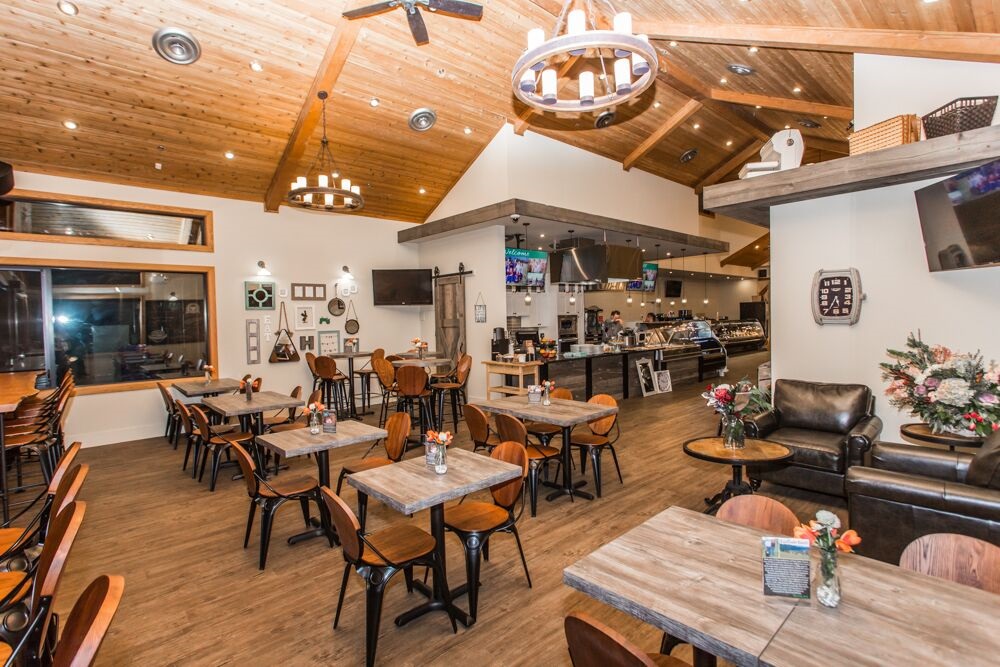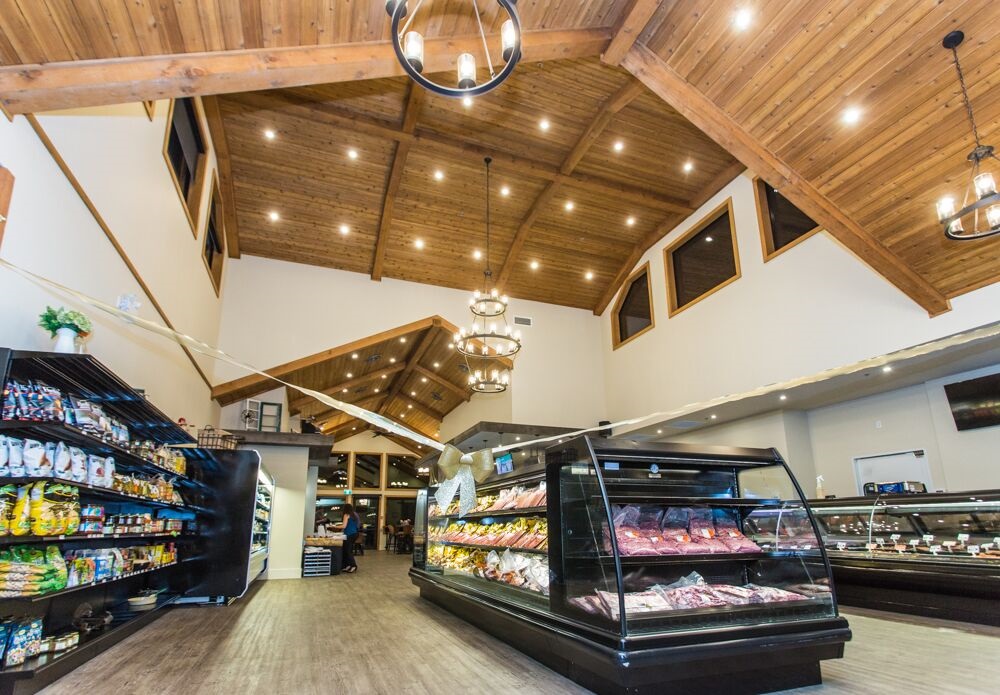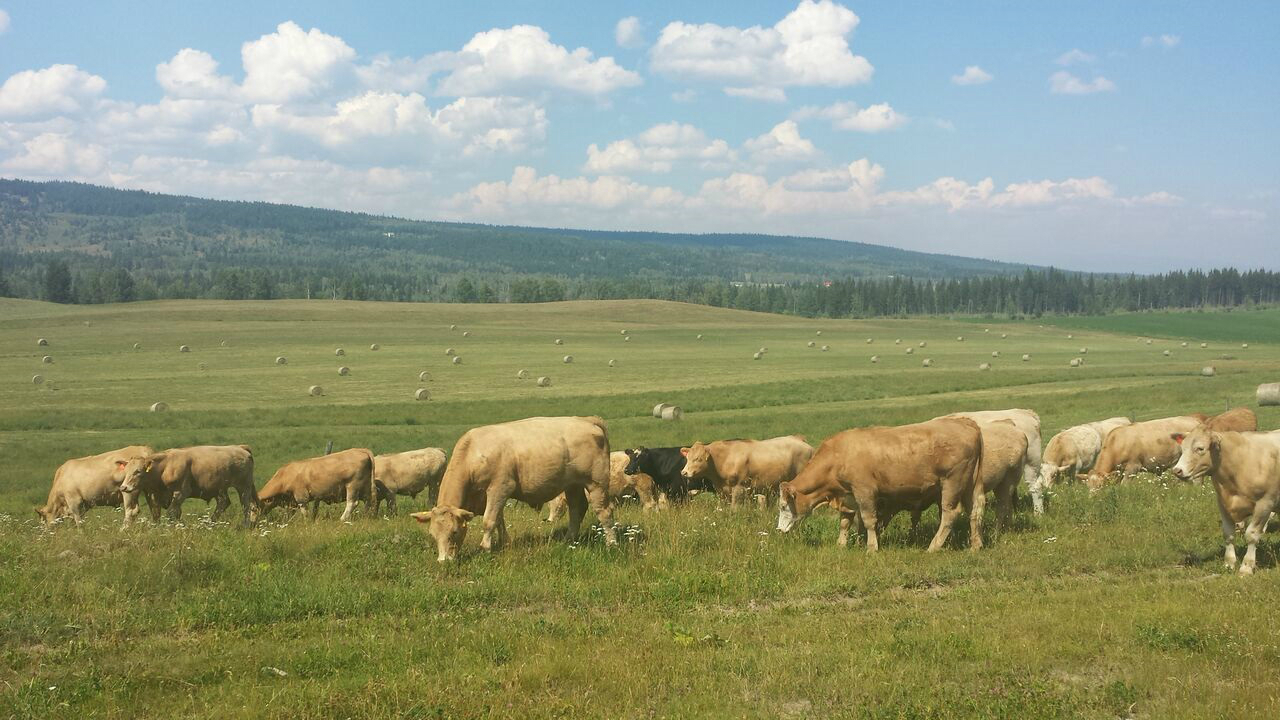There is a jabbing Portlandia skit in which two diners at a restaurant insist on knowing everything about the chicken they are about to eat: its breed, where it was raised, what it was fed, how big its “roaming” area was, its name—even whether or not it had friends. And though it is an exaggerated (albeit somewhat pointed) examination of today’s questioning eaters, there is certainly value in knowing where your food came from, and in being able to speak to the butcher who handled your dinner. That’s how the small but dedicated team at Hopcott Meats in Pitt Meadows views their work, and indeed, they could quite literally point to a steak in the fresh case of their meat shop and tell you the name of the cow it came from. How’s that for farm to fork?
The third-generation family business began as Hopcott Farm in 1932. Jane and Fred Hopcott operated it as a dairy farm until 1957, when the site was shifted to raise beef cattle, long a dream of Fred’s. In 1996, once Bob Hopcott had taken over for his parents, 60 acres of corn fields were made into cranberry bogs. “It’s hard to keep a family farm going today with the price of land,” Bob says. “You have to diversify.” So in 2006, Bob and his wife, plus their children, opened Hopcott Premium Meats to sell their fresh cuts and cured sausages to the public. And mere months ago, another accomplishment: the shop’s retail space was expanded from 9,000 square-feet to 13,000 square-feet, complete with an additional production area outfitted with state-of-the-art equipment.
“Seeing this space now, I don’t know how we did it before,” says Jennifer Hopcott-Foxley, the third-generation family member in charge of the meat shop operations. Hopcott-Foxley’s face grows red as she talks in front of a small group of gathered guests; she is shy and humble, not used to attention. But her love for what her family has built is evident nonetheless. “We’re proud to be a trusted local source,” she says, adding that both farmers and grocery shoppers choose their products. Hopcott-Foxley’s two brothers both work with the business, as well, and she says it is only a matter of time before another cohort steps up to bat: “My little fourth generation is excited to get into the business, too.”
Boasting self-sustaining practise comes with a fair set of trials, though. “One challenge we have with moving the whole carcass is the ground beef, the trimmings” says Lindsay. “You can’t just move that through the fresh case, so you have to think outside the bubble.” That leads to delicious meatballs, lasagna, sausages, you name it. “It’s not like bringing in boxed meat—that’s easy—you have to break down the whole carcass,” he says. “That’s something that customers really appreciate about our company: everything’s not sourced out, we do it all in house.” The AAA Grade beef is dry-aged for 21 to 28 days, resulting in cuts both tender and palatable. It’s a lot of work for a lean team, but Lindsay says that’s the way he likes it. “At the end of the day you feel like you’ve accomplished something,” he says. “It’s like vacuuming your house.”
Don’t stop now: read more great Business stories.












